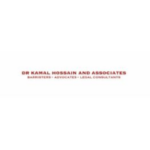-
Is your jurisdiction a common law or civil law jurisdiction?
Israel is primarily a common law jurisdiction. However, owing to its complex history (including periods in which it was under the control of the Ottoman Empire and the British Mandate), there are certain elements of civil law which have been incorporated.
-
What are the key statutory/legislative obligations relevant to construction and engineering projects?
There are various laws and regulations that deal with construction and engineering projects in general as well as particular legislation that has been enacted for projects that are sector-specific. For example, in an instance in which the environment in which an infrastructure project will be adversely affected by the erection of the works, the satisfaction of all environmental concerns and compliances will need to be achieved from the outset in accordance with environmental legislation. Accordingly, aside from the Planning and Building Law, 1965 (which constitutes the overriding piece of legislation applicable to the industry) what follows below are examples of additional legislation that have a general impact on the industry:
- The Law of Registration of Contractors for Construction Engineering Works, 1969, and the Regulations enacted by virtue of it
- The Contractor’s Act, 1974
- Planning and Building Regulations (Permits: Application, Conditions and Fees), 1970
- Planning and Building Regulations (Licensing of Natural Gas Facilities), 2003
- Planning and Building Regulations (Permit for Limited Work), 2003
- Planning and Building Regulations (Application for Permission to Establish a Road Structure), 2004
- Planning and Building Regulations (Construction of a Low-Pressure Gas Facility), 2006
- Planning and Building Regulations (Building Licensing), 2016
- Planning and Building Regulations (a building directly required for the construction or use of a road), 2016
Naturally, the examples recorded above are not exhaustive and depending on the project, other legislation (and regulations) are likely to be applicable.
-
Are there any specific requirements that parties should be aware of in relation to: (a) Health and safety; (b) Environmental; (c) Planning; (d) Employment; and (e) Anti-corruption and bribery.
Health and safety legislation in Israel is extensive and provisions requiring compliance therewith is included in numerous laws including, inter alia, the following: Accidents and Occupational Diseases Ordinance 1945; Sick Pay Law 1976; Work Safety Ordinance (new version) 1970; Labour Inspection (organization) Law 1954; Hours of Work & Rest Law 1951; Employment of Women Law 1954; Basic Law: Human Dignity and Liberty 1992; Foreign Employees Law 1991; Employment of Employees by Manpower Contractors Law 1996; and the Employment Services Law, 1959.
In Israel, company directors and senior managers bear the responsibility for publishing a Health and Safety Policy which sets out the manner in which they intend to ensure the safety of their employees and furthermore, provides management procedures dictating the management of health and safety during the execution of the project. The practical application of the measures to be implemented are collated in the Safety Management Plan.
The Labour Inspection Service of the Ministry of Industry, Trade and Labour (MoITAL) is responsible for supervising safety regulations. Other ministries, including the Ministry of Environmental Protection, Ministry of Health and Ministry of Defence deal with specific safety issues that are related to their particular fields of responsibility.
Depending on the works and the number of employees on site, a minimum number of mandatory safety personnel is statutorily required, for example, an employer that employs 50 workers or more on a site generally requires a certified safety engineer. Other positions which may be required depending on the circumstances of each case include, inter alia, safety supervisors, external nominated safety supervisors, occupational doctors, safety representatives, fire safety engineers, labour inspectors for occupational safety and health administration and fire prevention.
The Ministry of Environmental Protection (MoEP), on a national level, is responsible for providing the national environmental policy, legislation standards and priorities for environmental protection. Broadly speaking, the MoEP has far-reaching powers and extensive conditions that require satisfaction prior to the issuance of licences and permits which are critical in the design and execution stages of construction projects. Failure to satisfy the MoEP’s demands will invariably prolong the ability to obtain authorizations to carry out the works and concomitantly, result in delays.
Israel’s environmental legislation encompasses laws and regulations prohibiting inter alia, environmental irritants (prevention of air, noise, water and marine pollution) as well as additional measures that govern the safe treatment of hazardous substances, chemicals, radiation and toxic waste.
The Planning and Building Law, 1965 includes provisions that establish a framework for environmental planning. The Licensing of Businesses Law, 1968 serves to enforce environmental preservation in industrial projects by assessing licencing rights based on the particular needs of the applicant and the effect of their environmental impact. These enactments are examples of the myriad of legislative protections ensuring that the integrity of the environment remains intact.
All infrastructure projects are required to comply with any national and/or municipal zoning regulations, failing which project owners may be subjected to fines and/or demolition of the unauthorized structures.
Owing to Israel’s rich cultural history, the planning stage (the completion of which is usually conditional upon the procurement of numerous and varied permits for the execution of the construction) must take into account extensive excavation requirements in order to ensure preservation of antiquities and artefacts that may be unearthed during the course of the works. In addition, many structures throughout the country enjoy “heritage” status and projects have been historically altered to ensure that their integrity remains intact.
Israeli labour law applies to all employees located in Israel regardless of whether said employees are local or foreign. Aside from the employee protections enacted in labour legislation (for example, the Minimum Wage Law, 1987; the Hours of Work and Rest Law, 1951; the Annual Leave Law, 1951; the Sick Leave Law, 1976; the National Insurance Law, 1995; and the Women Employment Law, 1954), protection is also afforded to employees by way collective bargaining agreements particular to sector-specific industries.
As a result, legislation prevents infringements of employees’ rights insofar as minimum wage, sick leave, annual leave, maternity leave, public holidays, travel expenses and work and rest hours are concerned. In addition, employees are entitled to statutory contributions from employers with regard to national insurance and pension funds.
It goes without saying that discrimination in the workplace in respect of race, religion, age, sexual orientation, pregnancy or disability is prohibited.
It is pertinent to note that while local labour laws apply to all workers in Israel, the following legislation applies specifically to foreign construction workers:
- The Foreign Workers Law of 1991 entitles foreign workers to the right for appropriate housing and medical insurance. An employer who does not comply with this obligation may work permits and be liable to a civil lawsuit and criminal charges, including fines and even imprisonment.
- Foreign workers engaged in the construction industry are entitled to an extension order that is granted by the Minster of Labour. The extension order entitles construction workers to certain additional rights, such as an education fund and a higher minimum wage than the general minimum wage, in accordance with predefined wage tables that are particular to different sectors in the economy.
A contract that was awarded as a result of bribery may be declared null and void. However, this will be determined on a case-by-case basis, taking into account the relevant circumstances (including the stage at which the bribery was discovered).
With regard to the criminal aspect thereof, section 278 of the Israeli Penal Law 1977 states:
Where a public servant who by virtue of his office has judicial or administrative powers in respect of property of a particular kind or in respect of any manufacture, trade or business of a particular kind exercises such powers, either by himself or through another, whilst having, directly or indirectly, a private interest in such property manufacture, trade or business, he is liable to imprisonment for three years.
In July 2008, Israel ratified the Organisation for Economic Co-operation and Development Convention on Combating Bribery of Foreign Public Officials in International Business Transactions (the OECD Anti-Bribery Convention) that effected an amendment to the Israeli Penal Law making it an offence to bribe a foreign public official (section 291A). Accordingly, an offence would have been committed if one makes an offer or facilitates a bribe of a foreign public official for the purpose of promoting business activities (or an advantage in respect of same).
Both individuals and companies that attempt to – or actually do – offer, make or facilitate a bribe to foreign officials may face criminal prosecution. In the case of a company, both the company and the persons involved in the commission of the bribe may be liable to criminal prosecution.
The OECD Anti-Bribery Convention includes different provisions in respect of the penalties that offenders will face, including, inter alia, imposing sanctions on the briber (such as monetary sanctions, seizing and confiscating the proceeds of bribery (article 3)); providing legal assistance in foreign bribery cases, including in respect of criminal procedures (article 9); and defining the bribery of foreign public officials as an extraditable offence in both local legislation and any extradition agreements concluded between member states (article 10). The penalties that bribe-givers and bribe-takers will face are set out in the Penal Law, 1977.
Section 297 mandates that if a person – natural or juristic – is convicted in accordance with, inter alia, the above sections, the court may confiscate what was given as a bribe and anything that came in its place and cause the person that provided the bribe to pay the state the value of the benefit derived therefrom.
It is important to mention that while the Israeli Penal Law does not specifically obligate project team members to disclose potential violations regarding the bribery of government employees, knowledge of an offence and failure to disclose it may make said project team member an ‘accessory after the fact’ in accordance with section 260 of the Penal Law and could accordingly expose this person to the penalties contained in sections 261 and 262 thereof that, based on the severity of the offence, could result in up to three years’ imprisonment.
-
What permits, licences and/or other documents do parties need before starting work, during work and after completion? Are there any penalties for non-compliance?
Permitting and licencing procurement prior to the execution of design and building works is a fundamental pre-requisite for any construction works, especially mega-projects, which require numerous authorizations because generally, their execution affects a multitude of sectors that fall under varying municipal and national authorities. Application for, and procurement of, the necessary permits, inter alia, subject to the Law of Registration of Contractors for Construction Engineering Works, 1969, and the Regulations enacted by it, is extensively regulated and once complied with, is generally issued by the municipality in the district in which the infrastructure is to be established.
It is worthwhile to note that in many construction projects, permits demarcate the finalization of certain stages of the works and are often contractual markers signalling the achievement of specific milestones. That said, the procurement of permits and licences is not limited to a particular stage of the project since works often evolve and this necessitates changes to the original intention of the manner in which the project was initially intended to be constructed. In such instances, permits may be required for the said amendments.
Each project also brings with it unique permitting implications depending on the nature of the works, the effect on the surrounding environment, the density of the population in the area of the project, the inconvenience to the general public, the preservation of historical artefacts and heritage sites, interference or interruption of the provision of any services etc. Failure to adhere to permitting and licencing procedures may result in the payment of damages, penalties and/or the demolition of the unsanctioned works. Additionally, when works are performed without a permit, regardless of the stage at which the project may be, the relevant authority or the employer is likely to issue a stoppage thereof which will concomitantly result in delays and/or additional costs for the failure to comply with licencing regulations.
-
Is tort law or a law of extra-contractual obligations recognised in your jurisdiction?
Tort law is indeed recognized in Israel. Generally speaking, the relationship between the parties is governed by the agreement between them and to this extent, a provision for a claim by either party is likely to be included therein and accordingly, will be governed thereby.
The preservation of the rights of either of the parties that are not accommodated by the agreement are generally enshrined in legislation. Therefore, in respect of areas regarding which the agreement is silent, an aggrieved party will not be precluded from seeking relief for the protection of its rights if there are grounds to contend that same have been infringed.
-
Who are the typical parties involved in a construction and engineering project?
National infrastructure contracts are generally concluded between the employer and the primary contractor. Depending on whether the contract is design-build or simply execution may have an effect in determining the party tasked with concluding other contracts with the necessary designers and consulting engineers. In addition, the employer will usually appoint an engineer (supervisor) who will be responsible for the day-to-day oversight of the project as well as determining any awards pursuant to claims raised by the contractor.
The contractor will then conclude agreements with subcontractors, suppliers, specialists and other third parties whose expertise is required for the execution of the works. While these subcontractors will be accountable to the primary contractor, generally speaking, no liability is assumed by the employer pursuant to the subcontracts.
-
What are the most popular methods of procurement?
Procurement generally occurs by way of either public or private tender:
In terms of section 2(a) of the Mandatory Tenders Law of 1992:
The State and any government corporation, religious council, health fund and institution of higher education may not enter into a contract for the execution of a transaction in goods or in land, or for the execution of work, or for the purchase of services, except pursuant to a public tender that allows every person an equal opportunity to participate in it.Therefore, in accordance with the above, each of the aforementioned bodies are legislatively bound to evaluate bids only if same are pursuant to a public tender.
However, according to section 34(2a) of the Mandatory Tenders Regulations, a contract of a government company for the execution of a transaction in goods or in land, for the execution of work or for the purchase of services does not require tendering, if it is a contract of a company in privatisation, as referenced in the Government Companies Law 1975. According to this Law, a ‘government company’ is defined as a company in which more than half of the voting power in its annual general meeting or the right to appoint more than half of the number of its directors is held by the state or by a subsidiary thereof. If such a company has an annual volume of contracts above 2,080 million and provided the contract value does not exceed 3 million, it will not require tendering.
In addition, even a public company that undergoes privatisation or a semi-private company (such as the country’s national carrier El Al) can be subject to the legal principles and obligations that would ordinarily apply to a public entity. Furthermore, in an instance in which a private body applies the procedures for a governmental body, administrative law doctrines will apply that will govern the procurement obligations of that body.
-
What are the most popular standard forms of contract? Do parties commonly amend these standard forms?
The form of contract utilised in construction projects in Israel is not limited to a particular model. The parties have discretion to draft their own contracts or utilise a more standardised form, such as the forms of contract options presented by the International Federation of Consulting Engineers.
The parties will generally amend a standard-form contract to suit that project’s particular needs. One of such standard-form contracts is the “Government Shelf Contract” – the standard-form used by many government offices. In mega infrastructure projects, the government is generally the owner thereof and will have amended the contract extensively prior to it being dispatched in the tender stage. In such instances, the amendment thereof is usually quite far-reaching since the project is often complex, requires an extended period for execution and may include foreign parties that have language and jurisdiction requirements that need to be accommodated.
-
Are there any restrictions or legislative regimes affecting procurement?
Yes. Aside from the Mandatory Tenders Law of 1992 and the Mandatory Tenders Regulations 1993, the following legislation is required to be considered when publishing a tender:
- the Municipal Regulations (Tenders) 1987;
- the Contract Law (General Part) 1973;
- the Contract Law (Remedies for Breach of Contract) 1970;
- the Municipal Ordinances (New Version) 1934; and
- the Promotion of Competition and Reduction of Concentration Law 2013.
The above-mentioned legislation comprises the central legislation concerning the award of public contracts. However, there may be specific fields that have particular provisions or special legislation that would require compliance in order to engage in sector-specific public procurement, for example:
- the Mandatory Tenders Regulations (Institutions of Higher Education) 2010;
- the Mandatory Tenders Regulations (Contracts of the Defence System) 1993; and
- the Mandatory Tenders Regulations (Preference for Products made in Israel) 1995.
-
Do parties typically engage consultants? What forms are used?
In most construction projects – especially mega-projects – the necessity of engaging external professionals and consultants is generally unavoidable. Depending on the nature of the project, employers and/or contractors will procure the services of a variety of third-party providers by concluding subcontracts with them. In most national projects in Israel, the government requires that the contractor, as the primary contractor, engage with subcontractors without imposing any liability on the employer. In so doing, the primary contractor will remain the sole party from whom the employer will claim relief should it have the need to do so. In such circumstances, the contractor will look to its subcontractors for recuperation of those damages. Accordingly, the contractor will provide its own form contract to the subcontractors and negotiate the terms thereof in each instance.
The exception to the aforementioned circumstance is nominated subcontractors – subcontractors appointed by the employer. Generally, the contract will contain a list of particular subcontractors that have been pre-selected by the employer for the execution of specific works in the project. However, while these nominated subcontractors will be required to interface directly with the primary contractor, the latter’s ability to negotiate more aggressively is restricted as a result of the employer’s instructions.
There is a vast range of consultants that may be engaged in a particular project. Employers will often appoint an engineer to fulfil the role of “the Engineer” that interfaces with contractor on the day-to-day execution of the works. Other roles that are required subsequent thereto include inter alia, designers, architects, specialist engineers, time schedule experts, attorneys, quantity surveyors, project managers, foreman, safety and security officers and environmental experts. These persons may be involved in the project from commencement to conclusion or on an ad hoc basis dependent upon the needs of the project at any stage of execution.
The procurement method chosen for the works will influence the choice of designers for the project, and whether it is the employer or the contractor who will engage these consultants. The nature of the project as design-build versus build only may also have an effect in dictating the party to be tasked with appointment of particular consultants and experts, for example, in respect of the latter, the contractor is required to execute the employer’s design which was likely prepared by designers selected and employed by the employer – a situation which is usually not the case when the contractor bears responsibility for the design as well.
-
Is subcontracting permitted?
Unless expressly recorded to the contrary, subcontracting is permitted and usually expected. In general, the main contract will be signed between the primary contractor and the employer. The primary contractor may conclude separate agreements with any subcontractors that are to be engaged in the project. In certain projects, the employer may request specific and direct obligations from some of the major subcontractors, mainly to assure direct responsibility and to allow the employer to easily control the project in case of termination of the contract with the main contractor or in the event of its bankruptcy. In addition, subcontractors may be appointed by the employer (nominated subcontractors) in accordance with the contract for the execution of specific project works.
-
How are projects typically financed?
There are no specific forms or statutory frameworks that regulate the financing of PPP (public-private partnership) and PFI (private finance initiative) contracts in Israel. However, owing to the fact that in respect of both they are generally government-linked, there are departmental structures of government that regulate the financing of particular projects.
With regard to both PPP and PFI contracts, an appointed authority accompanies the project from the announcement of the successful bidder throughout the execution up until the final handover of the completed project to the state. The appointed authority is tasked with ensuring adherence to the schedule, compliance with the contractual provisions, overseeing the management of the financial obligations inherent to the contract and overall management of the state’s activities in respect of its responsibilities under the contract.
In accordance with the tendering principles contained in section 1A(a) of the Mandatory Tenders Regulations, a public body is required to hold a tender or a specific invitation process pursuant to a central tender ensuring maximum advantages for the public body. This obligation naturally carries with it a financial implication. Accordingly, in the instance of a PPP, since the setting up of same involves a partnership between a public and a private entity, the public entity’s obligations will govern the nature and obligations of the contract. To that end, setting up a PPP will always require a procurement procedure with a specific financing arrangement unless specifically directed otherwise.
-
What kind of security is available for employers, e.g. performance bonds, advance payment bonds, parent company guarantees? How long are these typically held for?
Construction contracts generally include several security provisions which, depending on the size of the project – and corresponding value thereof – will be calculated accordingly. In large-scale infrastructure projects, the employer typically pays the contractor an advance payment (in one or more tranches) and the contractor, in return, must provide the employer with an advance payment guarantee.
It is not uncommon for the advance payment to be repaid by the contractor through equal percentage deductions from each of the interim payments until the full repayment of the advance payment by the contractor has been achieved. The advance payment guarantee is usually required to remain valid until the full repayment of the advance payment by the contractor and/or may be progressively decreased based on the completion of milestones in addition to the amount deducted for each payment.
Contracts often include the requirement for contractors to provide a performance guarantee for the purposes of securing the fulfilment of the contractor’s obligations under the contract. It is important to note that during the course of the works, the contractor may be contractually mandated to reissue the performance guarantee when, as a result of variation orders or other adjustments, the contract price increases or decreases by more than a set percentage. The performance guarantee is generally required to be valid from the date of its issuance up until it is replaced by the defects liability guarantee.
The defects liability guarantee is usually linked to a defects liability guarantee period at the conclusion of a section of the works or the works as a whole and operates to secure the fulfilment of the contractor’s obligations, often as a precondition for the completion of – and payment for – a particular portion of the works.
In the event that the contractor was established for the purposes of carrying out the particular works of the specific project, it often has to rely on its parent company in order to satisfy the threshold requirements in the tender. In such an instance, it is not uncommon for employers to require guarantees from the contractor’s parent company ensuring that if the contractor fails to execute its works as required, the employer may turn to the parent company to seek relief.
-
Is there any specific legislation relating to payment in the industry?
Terms relating to payment will be recorded in the contract between the parties. Contractors, subcontractors and workers are normally paid electronically and, typically, payment will be made on a monthly basis or upon achieving a particular milestone. Often, subcontractor payments have to be made that also have an impact on the date on which a contractor will be paid. Generally, a contractor will provide the employer (or engineer, or both, depending on the form of contract) with a request for payment, and the employer or engineer will issue an interim payment certificate before payment is made. Payments will generally include any approved amounts.
Even though the method of payment is determined by the parties, payment invoices will be required to be submitted for taxation purposes and, therefore, proper accounting is required.
Contracts in Israel generally provide for different instances regarding the non-payment of accounts and the remedies available to the contractor in these instances. Liens cannot be placed without the consent of the employer and, therefore, the ability to use them will be conditioned upon the provisions of the contract
The failure to make a payment that is due, owing and payable to a contractor will constitute a breach of contract and entitle the contractor to all of the ordinary remedies that flow from a contractual breach such as specific performance, cancellation and a claim for damages. The contractor can also request that the court attach a liquid amount or particular asset of the employer to secure a specific amount for its claim.
-
Are pay-when-paid clauses (i.e clauses permitting payment to be made by a contractor only when it has been paid by the employer) permitted? Are they commonly used?
‘Back-to-back’ clauses are common in many contracts in Israel. However, it has been decided in numerous judgments that set out exclusions to these clauses that a subcontractor will be able to force the main contractor to make payment to it, even if the employer has not yet made the relevant payment to the main contractor, including, inter alia:
- when the refusal of the employer is not linked to any failure or breach by the subcontractor; or
- when the main contractor did not act fairly by taking steps to enforce the payment upon the employer.
-
Do your contracts contain retention provisions and, if so, how do they operate?
In the context of major infrastructure projects in Israel, the retention of monies by a project owner is not an unusual occurrence. The percentage pertaining to each retention will be governed by the contract between the parties.
Construction contracts generally contain clauses that require the contractor to make retention payments in accordance with several contractual imperatives, for example:
- Performance Guarantee – For securing the fulfilment of the contractor’s obligations under the contract, the contractor may be required to provide the employer with a Performance Guarantee which is often linked to the CPI as of bid submission date.
- Defects Liability Guarantee – For securing the fulfilment of the contractor’s obligations during the contractually specified “Defects Liability Period” the contractor may be required to provide a Defects Liability Guarantee, often as a precondition for the completion of – and payment for – a particular portion of the works.
-
Do contracts commonly contain liquidated delay damages provisions and are these upheld by the courts?
Construction contracts – especially in respect of governmental mega-projects – generally contain onerous liquidated damages (“LD”) clauses. The LDs often attach to interim milestones that are to be reached by certain dates and if not achieved punctually, incur the corresponding LD penalty. Each milestone may carry a different value (in line with its importance in the project as a whole) and provision is often made for a refund of LD payments that attached to an earlier missed milestone on condition that a later milestone is reached timeously; thereby demonstrating that no delay was caused to the project as whole.
Since LDs represent the employer’s primary, and often sole remedy, missed milestones are aggressively claimed for by the imposition of LDs. As a response thereto, contractors are tasked with submitting claims on the basis of which they justify the reason/s that the milestone was not achieved as planned by demonstrating the impact of circumstances beyond their control (and/or which were caused by a third party and/or the employer itself). The claim will set out the reason/s that the number of days for which LDs have been imposed is misplaced.
Unless resolved amicably between the parties, the matter will come before a court or arbitrator for adjudication who will hand down the appropriate award subsequent to an evaluation of the facts. Awards are frequently not reflective of an “all or nothing” approach and the adjudication may well result in some delay days incurring LDs and others being granted to the contractor as an extension of time.
In extreme circumstances, in which employers have failed to grant time extensions because they insist on adhering to the original time schedule despite significant changes to the works, contractors have little option but to invoke the Prevention Principle as a defence and claim that time has been put “at large” – a doctrine that effectively contends that there is no correlation between the works and the expected time schedule and therefore, the contractor must execute same within a reasonable time.
-
Are the parties able to exclude or limit liability?
Parties have freedom to contract and as such, are able to limit or exclude liability as necessary. Accordingly, there is nothing preventing a contracting party from indemnifying other parties against acts, errors and omissions that may arise from the works executed by the indemnifying party. However, a clause that attempts to limit or exclude liability for acts and errors made by the indemnified party’s gross negligence or wilful misconduct may be declared null and void as enforcing same would contradict public interest.
In addition, an attempt to enforce such a clause may be denied by virtue of a lack of good faith. Such a clause may also be heavily scrutinised by the courts in a way that will prevent the indemnified party from being compensated for acts or errors that it committed with gross negligence or wilful misconduct.
-
Are there any restrictions on termination? Can parties terminate for convenience? Force majeure?
The response to this question may be broken down into three:
Restrictions on Termination: The grounds on which termination may occur will be set out in the contract between the parties and usually includes the following:
- The contractor abandons the work or any part thereof for a specific period of time;
- The registration of the contractor’s entity is suspended or revoked and same is not remedied within a specified timeframe;
- The court makes an order for the liquidation of the contractor, or a resolution for a voluntary liquidation of the contractor is passed;
- Liquidation proceedings commence by, or against, the Contractor;
- The Contractor is insolvent, or fails to make payment of due debts;
- An action or proceeding or official investigation before or by any government authority, arbitration tribunal or other body is commenced against the contractor any of its rights or assets which seems likely to have an effect on the contractor’s ability to perform its obligations under the Contract;
- Any change in the control in the contractor (either by change in its shareholdings or voting power, or in the right to nominate directors), which the employer believes detrimentally affects the contractor’s ability to complete the works and/or fulfill its contractual obligations.
- Fraudulent, misleading and/or deceptive conduct by the contractor;
- The liquidated damages amount to the cap set in the contract for LDs;
- The contractor commits a material breach of the Contract.
In the event that the contractor elects to leave the project unilaterally before fulfilling all its contractual obligations, same shall be regarded as a breach of the contract and might expose the contractor to all of the contractual remedies available to the employer. The contractor will be liable for all damage that the employer suffers as a result thereof and will probably not be able to recover the retention monies (that are usually only returned upon successful completion of the project).
Termination for Convenience: “Termination for convenience” clauses do exist in Israel but are not frequently invoked in the realm of government contracts. Usually, the termination clauses are drafted in such a manner as to provide an employer with grounds on which to cancel owing to, or arising from, events surrounding the contractor’s actions such as, inter alia, misconduct, liquidity, security obligations or breach. If the contract was cancelled as a result of the employer’s decision to take on another contractor or omit the majority of the contractor’s works or indeed, simply by virtue of “convenience,” the contract between the employer and the contractor will likely have provided for such a situation and will govern it in accordance therewith. Usually, upon such termination, the parties (or the engineer as applicable) shall determine the value of the work performed and shall determine further:
- the amounts payable for any work carried out for which a price is stated in the contract;
- the cost of plant and materials ordered for the works that have been delivered to the site that shall become the property of (and be at the risk of) the employer when paid for; and
- the cost of removal of temporary works and contractor’s equipment from the site.
Force Majeure: Terminating contractual obligations owing to events beyond a contractor’s control is not automatic. Whether the contract provides for excusing a contractor from its obligations upon the occurrence of an event beyond its control depends on the wording of the contractual provision. In any event, in accordance with the law of contract, force majeure will usually excuse the contractor from performing its obligations to the extent that this event actually prevented the performance thereof. However, not every event that is beyond the contractor’s control will be deemed a force majeure event. Indeed, according to Israeli case law, even wars have not been declared as force majeure. Accordingly, the exact wording of the provision is important as a contract may excuse the contractor from performing its obligations in respect of different events that it labels as force majeure; for example, declared war, natural disasters, national strikes or national or general shortage of materials.
In most instances, especially in respect of a defined list of events, the contract will further stipulate that the event will only be deemed a force majeure event if it constitutes exceptional circumstances that could not have been foreseen upon the commencement of the works and that, despite the exercise of every reasonable effort, the contractor was unable to prevent or minimise the damage to the project.
-
What rights are commonly granted to third parties (e.g. funders, purchasers, renters) and, if so, how is this achieved?
The circumstances of each project are naturally different and accordingly, the third party rights in each instance will depend on various factors such as the site, the third parties themselves and the extent to which said rights may be protected and/or enforced. Several examples of third party rights that may be granted by specific provisions in the contract include inter alia, third parties’ rights in the site which allows third parties access to – and the ability to perform works on – sites concurrently with the contractor. In ensuring these rights, the contractor will be required to coordinate the activities with, and presence of, such other third parties at any relevant site.
In addition, and especially in respect of sites that are located in areas with much traffic (whether vehicular or pedestrian), the contractor is generally required to allow crossing (whether temporary or permanent) of the site and provide access thereto to the public and/or utility owners and/or to anyone acting on their behalf for the purpose of laying infrastructure and maintaining existing infrastructure.
To the extent that the project interferes with any residential housing or businesses, the contract is likely to contain provisions that accommodate the relocation of occupants due to unavoidable disruption and/or evacuation, which is a direct and unavoidable result from execution of the works.
-
Do contracts typically contain strict provisions governing notification of claims for additional time and money which act as conditions precedent to bringing claims? Does your jurisdiction recognise such notices as conditions precedent?
Generally, construction contracts include a range of timeframes for the submission of notices of claim (NOCs) and claims which the contractor desires to submit. The time in which to submit a NOC is relatively short and the initiation of the relevant time period commences from the day on which the contractor became aware – or ought to have become aware – of an event which may cause a delay as a result of said event. Contractors are afforded a longer period for the submission of the claim itself. While the contract may record that a failure to submit the NOC or claim within the set periods automatically bars the contractor from the relief it seeks, arbitrators and courts do not always apply the time-bar provisions as contended and the particular circumstances of the case are used to determine whether that time restriction should be strictly applied.
Governmental construction projects often omit the inclusion of a time period in which the employer or the engineer acting on its behalf is required to provide its determination pursuant to the claim. However, upon receipt, the contractor may have to file a notice of dissatisfaction (NOD) if it is dissatisfied with the employer’s response within a set time period failing which, it will be deemed to have waived its rights to arbitration. Once filed, the employer’s response will generally provide the basis on which the contractor will be able to better evaluate its position and determine whether proceeding to arbitration or court with its claim is likely to succeed.
Referral to arbitration or court will also be mandated by time periods, even if there is a contractual provision requiring that amicable settlement be attempted prior to the initiation of any litigation proceedings. In such instances, unless agreed otherwise between the parties (for example, by way of an agreed extension of a time period), the time period for the referral to arbitration or court is likely to act as a conditions precedent.
It is important to mention that in November 2019, the matter of Bibi Roads and Development Ltd v Israel Railways 8100/19 was brought before the Supreme Court, setting a precedent for contractors in respect of the manner in which courts would consider a claim of additional costs and extensions of time for additional work carried out by the contractor in a public tender. The court rejected some of the claims for additional payment and extensions of time on the basis that, inter alia, any contract awarded following a public tender would be classified as a ‘closed contract with all stipulations included’ and, therefore, cannot be deviated from, even if a change of circumstances was not anticipated by the parties. Under this precedent, the contractual procedures for requests for additional payment or extensions of time must be strictly fulfilled, otherwise the contractor’s claim will almost automatically be dismissed (even if it was justified on the merits). Accordingly, courts and arbitrators have authority on which to rely should they elect to apply the time periods as conditions precedent.
-
What insurances are the parties required to hold? And how long for?
Mega-construction projects usually require the contractor to take out a plethora of insurance contracts to be held for various durations of the works depending on when each becomes relevant. Naturally, insurance policies will span the entire duration of the works and, if applicable, the operation and maintenance stage / taking care stage subsequent to project completion. The policies to be procured may include the following non-exhaustive list:
- Contractors All Risks Insurance Policy
- Third Party Liability Insurance
- Employers Liability
- Heavy Equipment Insurance
- Marine “All Risk” Insurance
- Professional Indemnity Insurance
- Products Liability Insurance
In addition, specific policies may need to be procured for specific works for example, the requirement to relocate a work of art in order to execute works in that location will necessitate a specific type of insurance policy for the relocation, storage and reinstatement thereof albeit completely distinct from the actual construction works themselves.
-
How are construction and engineering disputes typically resolved in your jurisdiction (e.g. arbitration, litigation, adjudication)? What alternatives are available?
There is no specific construction court in Israel. Litigious disputes are resolved either in regular court or in arbitration proceedings. While parties enjoy freedom of contract (insofar as determining under which law a construction contract may be governed), in respect of all public construction projects, the choice of law when determining disputes will be Israeli law and the jurisdiction will be the Israeli courts (or an arbitration held in Israel).
Additionally, while there are no mandatory or statutory bodies that are permanently retained to function as dispute review boards, parties may, in the framework of their agreements, require the appointment of such a body to function as a preliminary stage prior to approaching the court or an arbitrator. In such an instance, the parties will determine the powers of the dispute review board, especially insofar as the binding nature of its decisions is concerned as well as whether said decisions are appealable.
Mediation is a process not usually utilised in major construction contracts. Notwithstanding the inclusion of clauses that support amicable settlement between parties prior to commencing litigation in certain contracts, mediation is not necessarily specified as the mandatory route for achieving this goal.
-
How supportive are the local courts of arbitration (domestic and international)? How long does it typically take to enforce an award?
In construction disputes – especially regarding mega-projects and even more so when the project includes international clients – arbitration is the preferable route from the perspective of the parties who will have a greater ability to be involved in the selection of the arbitrators (including the option to select engineers as arbitrators), the venue, the schedule and the language in which the arbitration proceedings will be conducted.
Courts fully support the arbitration process and the decision handed down by the arbitrator carries the same authority as an order of court (and can be made an order of court officially should the parties require it).
The arbitration agreement concluded between the parties generally includes an annex that sets out the rules for the arbitration in which a clause is usually inserted requiring the arbitrator to provide his / her ruling within a specified number of days following the conclusion of the arbitration proceedings.
-
Are there any limitation periods for commencing disputes in your jurisdiction?
As a general rule, the statute of limitations for a civil claim not based upon a right in land is seven years. Specific laws that provide for shorter limitation periods exist, but these are not relevant to construction disputes. The time for the statute of limitations begins to run on the date on which the cause of action arises. There are several exceptions to this rule that are primarily caused by a lack of knowledge (and inability to reasonably obtain the knowledge) on the part of the claimant as to when the action arose.
-
How common are multi-party disputes? How is liability apportioned between multiple defendants? Does your jurisdiction recognise net contribution clauses (which limit the liability of a defaulting party to a “fair and reasonable” proportion of the innocent party’s losses), and are these commonly used?
Owing to the fact that construction contracts – especially those involving mega-projects – often require numerous parties for satisfaction of the tender’s threshold requirements and/or the execution of the project, multi-party disputes are not uncommon.
In many instances, the various parties may form a joint venture (JV) for the execution of a particular project. However, there are several models of JVs that may be established that, depending on the selected model, will be governed by particular legislation. For example, the Israeli Contracts Law (General Part) 1973 and the Contracts Law (Remedies for Breach of Contract) 1970 will apply to contractual JVs. This model allows the parties to define their relationship and allocate the percentage of their respective responsibilities in a particular project. In such an instance, the joint venture members are jointly and severally liable to the employer but the members themselves will specifically set out the extent to which each is liable to the other in their agreement in the event of a claim.
Alternatively, the parties may decide to set up a JV partnership. JV partnerships are subject to the Israeli Partnership Ordinance (New Version) 1975. There are two forms of partnership: a general partnership and a limited partnership.
A general partnership is an unlimited liability partnership in which all partners jointly and severally share unlimited liability for the obligations of the partnership. In contrast, a limited partnership has at least one general partner that will be liable for the obligations of the partnership and at least one limited partner who will be limited to the amount that it invested in the partnership.
The vehicle selected by the JV members or partners to regulate their internal relationship will determine the extent to which one member or partner is liable to the others. Other than the vehicle of a limited partnership, the employer will hold the JV jointly and severally liable for any loss or damage it incurs arising from the contractual relationship. To that end, net contribution clauses are not ordinarily used. That said however, courts and arbitrators may make adjustments in their awards to the amounts claimed taking fairness and reasonableness into account.
Additionally, contracts that contain liquidated damages clauses will generally cap the amount that an employer can claim for liquidated damages. Notwithstanding the fact that these clauses are not generally expressly drafted with “fairness and reasonableness” the ultimate effect prevents an unrestricted punitive result for contractors.
-
What are the biggest challenges and opportunities facing the construction sector in your jurisdiction?
As attorneys, we respond to this question from a legal perspective and to that end, the response from members of the industry would likely differ. In November 2019, the matter of Bibi Roads and Development Ltd v Israel Railways 8100/19 was brought before the Supreme Court. The matter set a worrying precedent for contractors for the manner in which courts would consider a claim of additional costs and extensions of time for additional work carried out by the contractor in a public tender. The court rejected some of the claims for additional payment and extensions of time on the basis that, inter alia, any contract awarded following a public tender would be classified as a ‘closed contract with all stipulations included’ and, therefore, cannot be deviated from, even if a change of circumstances was not anticipated by the parties. Under this precedent, the contractual procedures for requests for additional payment or extensions of time must be strictly fulfilled, otherwise the contractor’s claim will almost automatically be dismissed (even if it was justified on the merits).
In April 2020, an application for an additional hearing was brought before the Supreme Court. However, the application for a further hearing was not granted for the following reasons: Firstly, according to the Supreme Court, a determination according to which all contracts following public tenders would be classified as a ‘closed contract with all stipulations included’ and, therefore, cannot be deviated from was not explicitly set out in any of the judgments by any of the judges. Secondly, no new precedent was required by the decision as the parties explicitly agreed on a pricing mechanism for the execution of specific works and therefore, the situation is not one in which unforeseen circumstances not anticipated by the parties will occur.
The impact of the judgment on the canon of construction litigation has yet to be tested. Some have suggested that as the Supreme Court did not grant a further hearing, the case does not create significant consequences that are objectionable for contractors. If it did, the Court would have had to allow an additional hearing. However, the judgment was handed down by the Supreme Court, which binds other courts.
Therefore, one of the biggest challenges facing contractors is employers’ frequent use of the judgment in the Bibi Roads case as justification for the denial of requests for extensions of time or additional costs submitted by contractors based on procedural arguments and on the principles established in this case. Accordingly, court decisions following the Bibi Roads case have mostly centred on the interpretation of contracts in a formalistic manner (not only in the context of construction projects, but also in other commercial circumstances) – particularly if these contracts were drafted by experienced parties, who were represented by counsel, and are thus deemed sophisticated enough to have their interests expressed through the wording of the contract.
However, there were instances in which the District Courts have taken a more lenient stance with regard to the interpretation of contractual provisions: in 1207/07 Afcon Control and Automation Ltd. V. Israel Airports Authority, the District Court of Tel Aviv-Yafo has accepted Afcon’s argument (the contractor) regarding its entitlement for remeasurement of the contractual prices due to an increase in quantities of over 50% (although, Afcon’s other argument with regard to entitlement for extension of time was rejected, due to the fact that it had not submitted its claims in accordance with the contractually stipulated mechanism, and has not substantiated said claims in a sufficient manner); and in 3331-06-16 Shibolet Engineering and Construction Ltd. V. Israel Nature and Parks Authority, the District Court of Jerusalem has accepted Shibolet’s arguments (the contractor) with regard to its entitlement for additional payments due to the prolongation of the project’s works, due to reasons for which the contractor was not responsible, despite the contractual provisions stipulating that any delay in the project schedule shall entitle the employer to liquidated damages. In addition, the court has accepted the contractor’s interpretation regarding the issue of price linkage, and stated that the contract’s provisions should be interpreted against the party who drafted it (in accordance with section 25(b1) of the Contracts Law (General) – 1973).
The Bibi Roads case may also have an effect on the risk assessments by contractors submitting bids to current and future tenders, especially with regard to “mega-projects”, which are highly complex and expensive. The nature of these projects, due to their size and extent, requires contractors to submit bids based on a certain set of conditions, set out by the employer, with limited ability to shape the negotiation process – let alone change the provisions of the contract in their favor – in a way that will account for unpredicted changes during the execution of the works (which often occur, regardless of the contractor’s conduct). This is particularly true for tenders issued by public bodies or governmental institutions, who are bound to contractual engagement through a tender by default, in which the contract is drafted and amended solely by the employer.
Under these circumstances, contractors are already assuming most of the contractual risks unto themselves; following the Bibi Roads case, this burden is further increased, essentially requiring contractors to adjust their price proposals already at the early stage of bid submission, in order to account for potential unknown risks, thus decreasing their chances of winning the tender.
However, this presents attorneys with an opportunity to provide advice to contractors from the commencement of a project and throughout its lifetime in order to build a sustainable case that counters the Bibi Roads argument when employed.
-
What types of project are currently attracting the most investment in your jurisdiction (e.g. infrastructure, power, commercial property, offshore)?
The construction industry in Israel is booming in almost every respect: from a residential perspective, emigration to Israel over the past few years has set record numbers; the commercial construction space owing to, inter alia, a flourishing hi-tech industry has increased the number of high-rises in commercial centres and the number of mega-projects is continually increasing.
Israel is a young country and therefore, from the perspective of mega-projects, Israel is creating infrastructure which other countries executed centuries ago. However, in her case, Israel is doing so with the benefit of modern technology. Currently underway are major projects dedicated to building a light railway in the Tel Aviv metropolitan area, as well as a metro line. The Tel Aviv metropolitan is the most densely-populated area in the country and these projects are intended to revolutionize the way in which millions of people commute on a daily basis, and significantly alleviate daily traffic congestions. In addition, there are multiple projects dedicated to the construction of light railways in other parts of the country, such as the Haifa-Nazareth line, in the northern region of Israel.
Regarding the energy sector, there are strategic projects concerning the establishment of facilities for the production of clean energy, including: power plants for the production of electricity, water desalination plants, wind farms, solar plants, sewage treatment plants etc. – all of which are necessary to maintain Israel’s progressive stance in sustainability, conservation of the environment and innovative methodologies. In this regard, it should also be noted that the recent discovery of natural gas sources off Israel’s northern shores bears great national significance, regarding the possibilities of production and distribution of natural gas.
Sufficed to state, the projects (residential, commercial and industrial) attracting investment – both foreign and domestic – are numerous and increasing all the time.
-
How do you envisage technology affecting the construction and engineering industry in your jurisdiction over the next five years?
Israel is world-renowned as a hub of innovation in the technology sector with start-ups cropping up on a daily basis in order to disrupt industrial norms that have become entrenched over many years. The construction and engineering industry is not immune to that disruption and is indeed benefiting from revolutionised approaches to age-old construction complications. For example, health and safety automation allows for contractors to know, not only who is on a particular construction site at any given time but also, whether that individual has the necessary permits to be there as well as whether he/she has received any prior warnings for any non-compliant conduct prior. Additionally, collaborative tools like “BIM” models (Building Information Modelling) have enabled a far smoother design and execution process. Also, AI technologies have been developed which are equipped to provide a 360 degree analysis of a 3D model to the extent that schedule automation, tracking progress and early issue identification and mitigation can be attended to immediately; thereby reducing delays and obstructions to the works.
-
What do you anticipate to be the impact from ongoing supply chain issues and the escalation of material costs over the coming year?
The supply-chain issues posed by the war between Russia and Ukraine were compounded by the impact of global material and labour shortages which, in turn, had a significant knock-on effect on the infrastructure industry. This impact has been further exacerbated in Israel specifically, owing to the war initiated by Hamas on 7 October 2023. As a result of each of these events – and consequently, the substantial effect of their cumulative impact – numerous contractors are being faced with claims from subcontractors and suppliers citing Force Majeure as the grounds on which to justify a cancellation or amendment to the provisions of their contracts. While cancellations are rarer than amendments, the effect of the changes being requested are far-reaching and are usually to the effect of, inter alia, extending schedules for delivery of goods and materials and/or extending completion dates and/or requesting additional costs owing to the increase in goods and materials borne from their scarcity or the increased costs required for their manufacture and/or shipping. These requests are obviously more prevalent in respect of contracts that were signed prior to the events recorded above.
Furthermore, the abovementioned events have not only resulted in supply-chain issues as stand-alone events but rather, this cog in the establishment of any project – especially a mega-project that demands enormous quantities of supplies (by way of both materials and services) – has caused unavoidable delays which gives rise to penalties being levied on contractors. These delays, coupled with the increase in prices of goods, shortages of supply of materials, increased costs in the procurement of the materials, increased costs in fuel, increased costs in freight – and in Israel specifically, following the attacks by Yemenite Houthis in the Red Sea, the decreased availability of transport to site required to bring materials for usage in projects – are all effects that are not only still being felt but moreover, are constantly being renewed, challenging the industry to mitigate their impact by finding alternatives.
The impact of supply-chain issues and material increases are usually accommodated in construction contracts – either being included as a ground for the issuance of a Change or Variation Order or expressly excluded as such. In instances of the former, many contracts contain a base index published by an independent financial institution or recognized construction index as a reference point to determine whether or not the price has fluctuated by more than an allowable margin. In the event that it has not, the contractor will generally not be awarded the difference pursuant to a Change Order. Such particularity in a contract is extremely helpful in determining the parties’ conduct subsequent to the notification of a fluctuation.
While the industry has not yet fully recovered from the impact of the events set out above that have caused the supply-chain issues and rise in material prices, the effect of the Hamas-initiated war in Israel has presented an additional obstacle with numerous professionals being called up to the military to defend the country and in so doing, leave their professions for months at a time. Additionally, international workers have only recently been permitted by their respective countries to resume travelling to Israel for construction purposes and therefore, there is increased pressure to mitigate – inasmuch as possible – the unavoidable delays to works that were stopped for security reasons owing to constant rocket fire from Hamas. While war is often not viewed by Israeli courts as an event of Force Majeure, the unprecedented provocation and ongoing impact following the atrocities of 7 October 2023 insofar as their effect on the industry may force dispute resolution forums to reconsider this stance.
Israel: Construction
This country-specific Q&A provides an overview of Construction laws and regulations applicable in Israel.
-
Is your jurisdiction a common law or civil law jurisdiction?
-
What are the key statutory/legislative obligations relevant to construction and engineering projects?
-
Are there any specific requirements that parties should be aware of in relation to: (a) Health and safety; (b) Environmental; (c) Planning; (d) Employment; and (e) Anti-corruption and bribery.
-
What permits, licences and/or other documents do parties need before starting work, during work and after completion? Are there any penalties for non-compliance?
-
Is tort law or a law of extra-contractual obligations recognised in your jurisdiction?
-
Who are the typical parties involved in a construction and engineering project?
-
What are the most popular methods of procurement?
-
What are the most popular standard forms of contract? Do parties commonly amend these standard forms?
-
Are there any restrictions or legislative regimes affecting procurement?
-
Do parties typically engage consultants? What forms are used?
-
Is subcontracting permitted?
-
How are projects typically financed?
-
What kind of security is available for employers, e.g. performance bonds, advance payment bonds, parent company guarantees? How long are these typically held for?
-
Is there any specific legislation relating to payment in the industry?
-
Are pay-when-paid clauses (i.e clauses permitting payment to be made by a contractor only when it has been paid by the employer) permitted? Are they commonly used?
-
Do your contracts contain retention provisions and, if so, how do they operate?
-
Do contracts commonly contain liquidated delay damages provisions and are these upheld by the courts?
-
Are the parties able to exclude or limit liability?
-
Are there any restrictions on termination? Can parties terminate for convenience? Force majeure?
-
What rights are commonly granted to third parties (e.g. funders, purchasers, renters) and, if so, how is this achieved?
-
Do contracts typically contain strict provisions governing notification of claims for additional time and money which act as conditions precedent to bringing claims? Does your jurisdiction recognise such notices as conditions precedent?
-
What insurances are the parties required to hold? And how long for?
-
How are construction and engineering disputes typically resolved in your jurisdiction (e.g. arbitration, litigation, adjudication)? What alternatives are available?
-
How supportive are the local courts of arbitration (domestic and international)? How long does it typically take to enforce an award?
-
Are there any limitation periods for commencing disputes in your jurisdiction?
-
How common are multi-party disputes? How is liability apportioned between multiple defendants? Does your jurisdiction recognise net contribution clauses (which limit the liability of a defaulting party to a “fair and reasonable” proportion of the innocent party’s losses), and are these commonly used?
-
What are the biggest challenges and opportunities facing the construction sector in your jurisdiction?
-
What types of project are currently attracting the most investment in your jurisdiction (e.g. infrastructure, power, commercial property, offshore)?
-
How do you envisage technology affecting the construction and engineering industry in your jurisdiction over the next five years?
-
What do you anticipate to be the impact from ongoing supply chain issues and the escalation of material costs over the coming year?



















